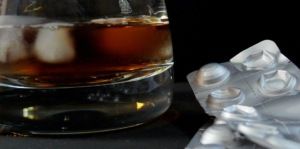News
Record number of Danes having their drinks spiked
This article is more than 8 years old.
Number of cases has more than doubled since 2013

Be vigilant out there (photo: Pixabay)
People having their drinks spiked whilst on a night out is becoming a bigger problem every year, according to new figures from two hospitals in Copenhagen.
According to cases handled by the poison hotline at Bispebjerg and Frederiksberg hospitals, there have been 160 reports in 2017, which is already 40 more than last year and more than double the 74 cases reported in 2013. But the problem is probably far greater than reported.
”Many people become so ill that they go home, but not to the hospital. When they awake the next morning, it can be difficult to ascertain whether the hangover feels different, so they may not ever realise it,” Kim Dalhoff, a doctor with the poison hotline, told Metroxpress newspaper.
”We expect an increase in December with all the Christmas lunches and New Year’s Eve.”
READ MORE: Denmark fails in WHO report regarding underage drinking
Responsible drinking
Women in particular are vulnerable to having their drinks spiked, and Dalhoff urges people never to accept drinks from strangers or leave drinks unattended.
One of the more common drugs used to spike drinks is GHB, which is easy to access, works quickly, leads to blackouts and works for a couple of hours. The drug has no taste or odour.










































